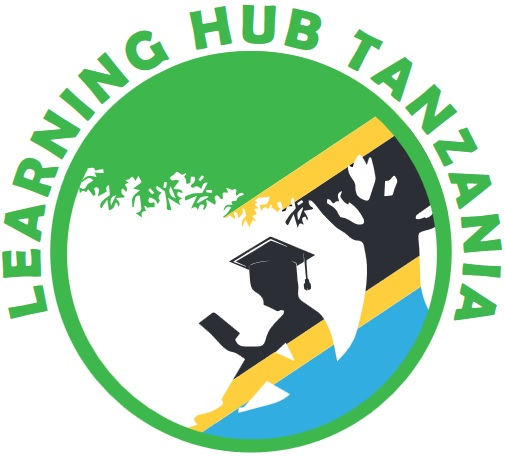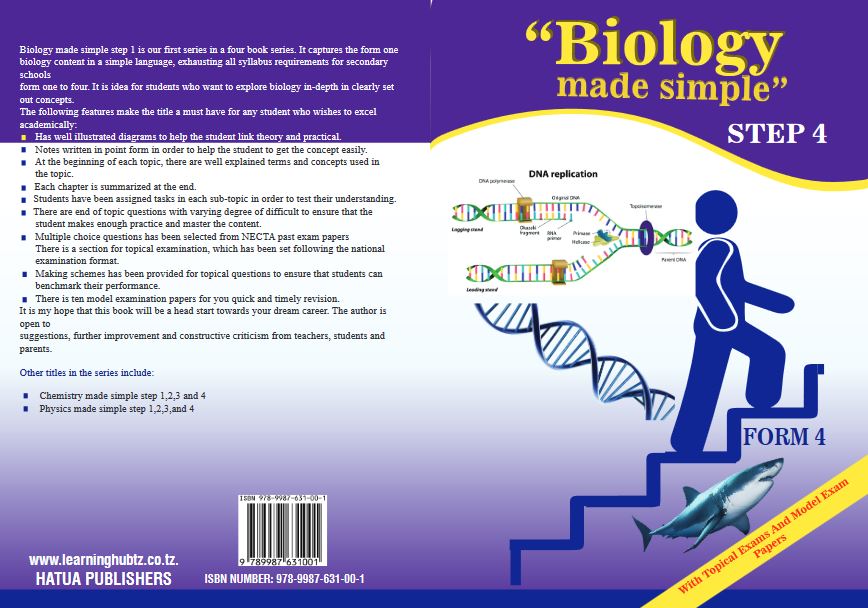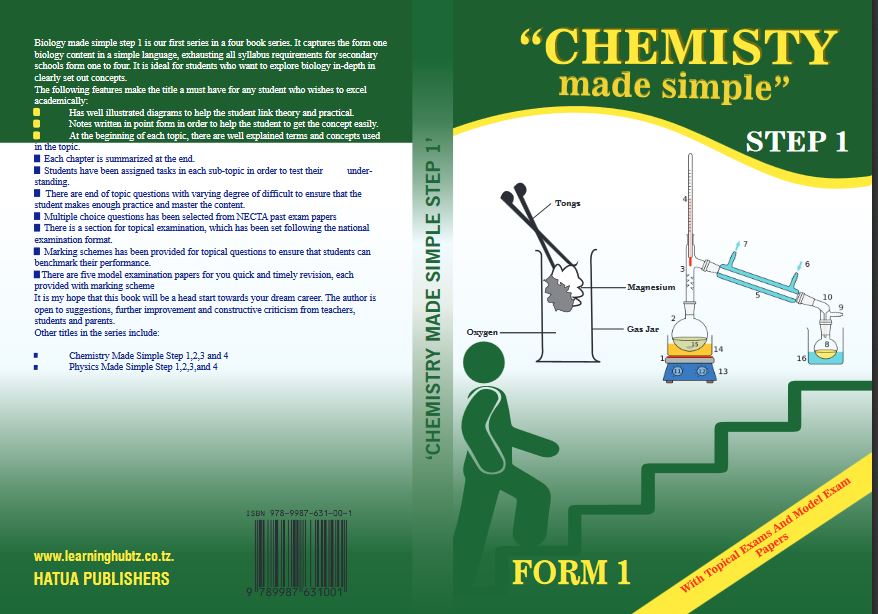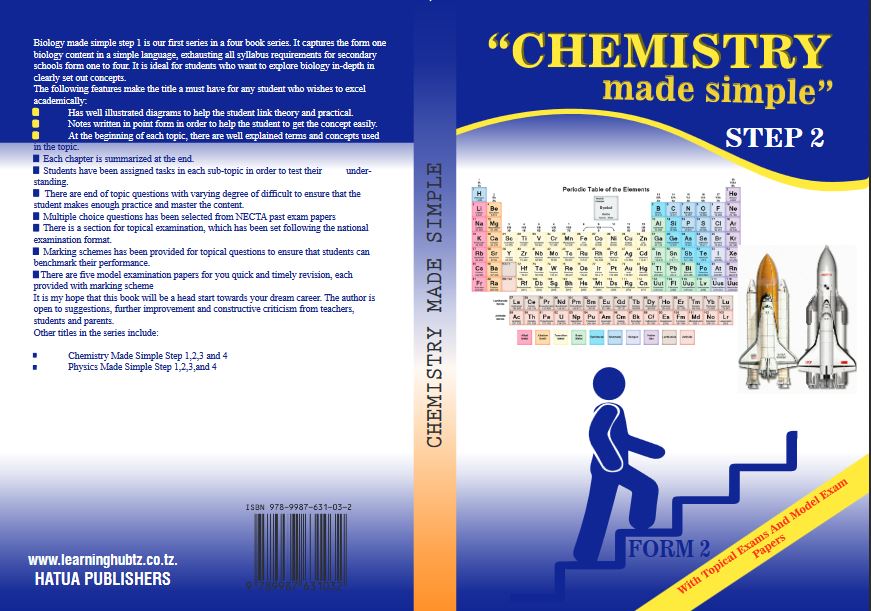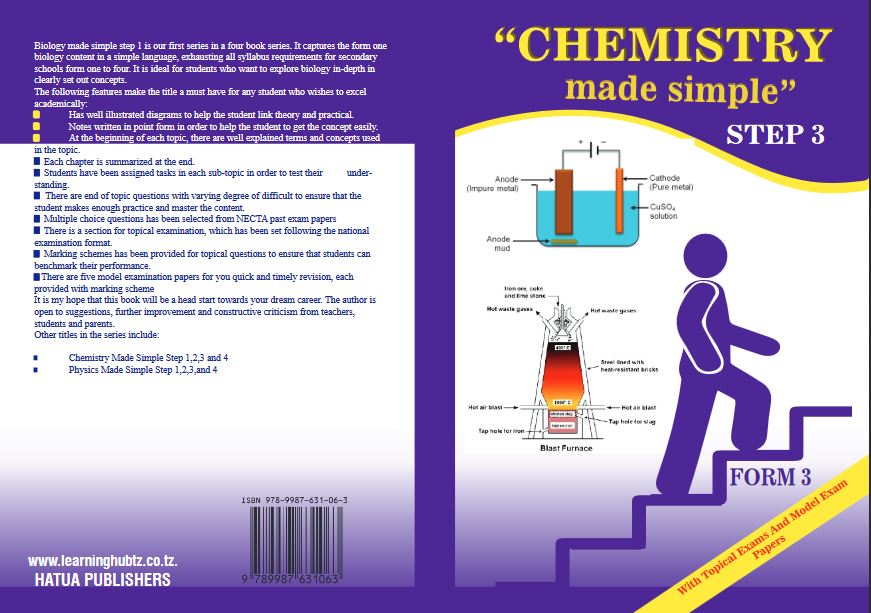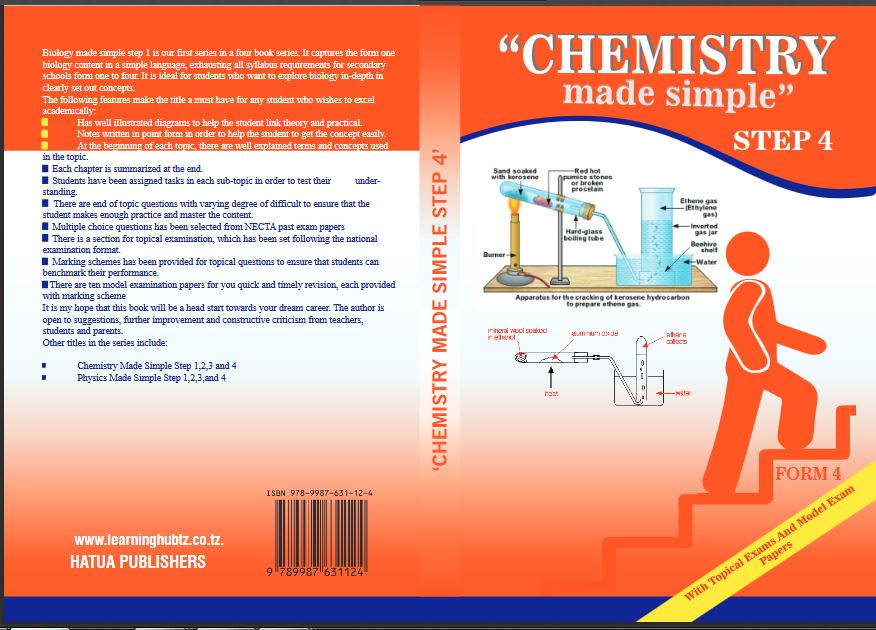
FORM THREE CIVICS EXAM SERIES 218
FORM THREE CIVICS EXAM SERIES 218

FORM THREE CIVICS EXAM SERIES 207
FORM THREE CIVICS EXAM SERIES 207
PRESIDENT’S OFFICE
REGIONAL ADMINISTRATION AND LOCAL GOVERNMENT
MID TERM EXAMINATION AUG/SEPT- 2024
SECONDARY EXAMINATION SERIES
CIVICS FORM THREE
TIME: 3HRS
INSTRUCTIONS
- This paper consists of section A, B and C with fourteen (11) questions.
- Answer ALL questions in section A and B and one (1) questions from section C
- Section A carries fifteen (15) marks, section B forty (70) marks and section C forty-five (15) marks
- Cellular phones and unauthorized materials are not allowed in the examination room
- Write your name on every page of your answer sheet(s)
SECTION A (15MARKS)
Answer all questions.
(i) What is the supreme law of Tanzania?
- The Penal Code
- The Constitution
- The Bill of Rights
- The President's decrees
(ii) Which of the following is NOT a type of constitution?
- Written constitution
- Unwritten constitution
- Flexible constitution
- Rigid constitution
(iii) Right to live in a clean and free from political life falls under
- Economic right
- Environmental right
- Social right
- Sanitation right
(iv) Which is non enshrined in constitution?
- Freedom of association
- Freedom of violent demonstration
- Right of life
- Freedom of religion.
(v) Which is not a requirement to apply for citizenship?
- Must be a rich person
- Must live in a country for five years
- He/she must be 21 year old above
- Must renounce his/her former citizenship
(vi) The following are the functions of National Electoral Commission except?
- To register voters.
- To prepare equipment/facilities for voting
- Supervision the whole process of election.
- To ensure there is peace during elections.
(vii) Which of the following is not the source of national income in Tanzania?
- Development levy.
- Income tax.
- Profits from parastatals.
- License fees.
(ix) Early marriage often results in:
- Increased educational opportunities for girls
- Improved health outcomes for mothers and children
- Higher rates of school dropout among girls
- Greater economic independence for women
(x) Which of the following is a way to empower women?
- Restricting their access to education
- Promoting harmful traditional practices
- Providing them with skills training and economic opportunities
- Encouraging early marriage
2. Matching items
| LIST A | LIST B |
|
|
SECTION B
3. (a) Define the term development and explain two levels of development
(b) Differentiate between social development and economic development.
4. Outline the advantages and disadvantages of a written constitution.
5. Identify the functions of the parliament
6. Write down importance of democratic election.
7. Explain five qualities of a good leader.
8. Discuss the responsibilities of a citizen.
9. Write short notes on the following
- Freedom expression
- Right to life
- Right to work
- Basic human right.
10. What are the negative effects of female genital mutilation (FGM)?
SECTION C
11. One of the most threatened African institutions is the marriage in current. In six points, demonstrate to the unmarried Tanzanian youths the positive impact of observing courtship.
FORM THREE CIVICS EXAM SERIES 177
FORM THREE CIVICS EXAM SERIES 177
PRESIDENT’S OFFICE REGIONAL ADMINISTRATION AND LOCAL GOVERNMENT
MID TERM EXAMINATION AUG- 2023
SECONDARY EXAMINATION SERIES
CIVICS FORM THREE
TIME: 3HRS
INSTRUCTIONS
- This paper consists of section A, B and C with fourteen (14) questions.
- Answer ALL questions in section A and B and three (3) questions from section C
- Section A carries fifteen (15) marks, section B forty (70) marks and section C forty-five (15) marks
- Cellular phones and unauthorized materials are not allowed in the examination room
- Write your name on every page of your answer sheet(s)
SECTION A (15MARKS)
- For each of the following items (i) –(x) choose the correct answer from among the given alternatives and write its letter in the space provided (10 marks)
- The chairperson of Mjimwema village displays the village income and expenditure report on the wall, outside her office before annually village meeting. Which among the following is the principle of democracy demonstrated by village chairperson?
- Political tolerance
- Civic responsibility
- Citizen participation
- Separation of power
- Transparency
- In the corrupted society, officials exercise power than what they argued by laws, which means they are free to do that they think to be right and saves their interests. This situation can be termed as: -
- Abuse of power
- Corruption
- Rule of law
- Equality
- Equity
- After death of president John Pombe Magufuli, soon President Samia Suluhu Hassan took over after taking an oath in front of chief justice of the united republic of Tanzania. Taking an oath by elected leaders is not an individual obligation but is a lawful action. What does an oath intend?
- To bring an individual close to God
- To start new government
- To defend public interests
- To declare a person who won election
- To end the process of election
- There so many ranks in the hierarchal government of Tanzania, which controls the nation from the top to the bottom. Who is the officer in charge in the district government?
- District commissioner
- District chairperson
- District executive director
- The councilor
- Citizen responsibility
- In life skills it is said a person must appreciate herself/himself if you are to be successful. What can we call such stage?
- Self-esteem
- Self-services
- Self- awareness
- Assertiveness
- Self-expression
- Lack of public awareness, ignorance of the language of the law required and sometimes limited financial resources are the major limits for the civilians to defend themselves into the courts. In this case, private law firms and lawyers are responsible to defend the accused people in all judicial levels except?
- District courts
- High courts
- Residential magistrate courts
- Primary courts
- Court of appeal
- If you are to explain on the importance of human rights, which among the following are group of rights that cannot be claimed in the court of law and are not included officially in the documents of laws in the country?
- Civil rights
- Political rights
- Environment conservation rights
- Moral rights
- Economic and cultural rights
- There has been a campaigns led by the government officers that citizens has to employ themselves by stating and run their business. On the other hand, youth’s access to soft loans from financial institutions in the country in the so limited. What do you think is the reason for such limitation?
- Lack of proper identification
- Few number of loan giving institution
- Lack of entrepreneur skills and security of the loans
- Political conditions attached on the loan
- Ignorance of the youths
- Which among the given alternatives is the deliberately formulated rules of behavior that are enforced by a special authority?
- Laws
- Customs
- Traditions
- Norms
- Rules
- The essence for posting, drawing and keeping a road traffic signs along the road is : -
- Directing drivers
- Helping traffic police when they are tired
- Reducing traffic
- Managing the best ways of using the roads by roads users
- Abiding the laws
2. Match the physical processes represented by roman number (i)- (v) in LIST A with the corresponding terms in LIST B by writing the letter of the correct response beside the item number in the answer booklet provided
| LIST A | LIST B |
|
|
SECTION B (40 MARKS)
- In Tanzania, there is an ongoing discussion for constitutional reforms in the country. As a form three expert in civics, point out five (5) importance of national constitution
- Tanzania revenue authority (TRA) is one among the entrusted institution for collection of revenue in the country for the best interest of citizen. In light of this statement, what are the five (5) areas where the central government spends its revenue?
- As a development stakeholder, explain five development models that are applied by many countries in the world including Tanzania
- Working hard is an engine for development in any country. If the community to join their efforts together it will bring development in all spheres in their areas. What are five importance of team working?
- Social interaction in a community contributes to the development in the society. In the light of this statement, assess the qualities of developing the positive relationship in a community.
- Despite of good human rights records in the country, Tanzania still suffer from the problem of human rights abuse. You as a member from amnesty international, propose five ways of combating with this problem in Tanzania.
- High standard of life and work are inseparable. In the light of this statement highlight five points on the importance of work to national development
- Assume you are an activist from Tanzania Gender Network program(TGNP), explain to the community five consequences of negative socio-cultural practices in Tanzania.
SECTION C (15 MARKS)
- Every organ of the government has its separate roles to perform as per the laws of the country, with reference to Tanzania, what are the five (5) functions of national electoral commission (NEC) during election period
FORM THREE CIVICS EXAM SERIES 141
FORM THREE CIVICS EXAM SERIES 141
THE PRESIDENT’S OFFICE
MINISTRY OF EDUCATION, REGIONAL ADMINISTRATION AND LOCAL GOVERNMENT
SECONDARY EXAMINATION SERIES
CIVICS MID TERM EXAMINATION
FORM THREE-AUG/SEPT-2021
Time: 3Hours
Instructions.
- This paper consists of section A, B and C with a total of 14 questions
- Answer all questions in section A and B and three questions from section C.
- Section A carries 15 marks, section B 40 marks and section C 45 Marks
- Programmable calculators, cellular phones and any other unauthorized materials are not allowed in examination room.
- Write your number on every page of your answer booklet.
SECTION A (15 Marks)
Answer All questions in this section.
(i) Assume you are planning to get married, for about a year now you have developed friendship with a person of the opposite sex whom you think is the right candidate. How can you describe such kind of relationship?
- Premature marriage
- Wedding
- Honeymoon
- Courtship
- Marital relationship
(ii) Monas husband died and her in laws forced Mona to marry Tulizo, her late husbands young brother. Such a family decision demonstrates.
- gender blindness.
- gender stereotyping.
- gender equality.
- gender mainstreaming.
- gender discrimination.
(iii) Which among the following root causes of poverty is beyond the control of the Government of Tanzania?
- Unequal exchange in international trade
- Communicable diseases
- Rapid population growth rate
- Mismanagement of public funds
- Ignorance of the people
(iv) Which among the following institutions is a Social Security Scheme?
- NMB
- CRDB
- NBC
- PSPF
- TPB
(v) Why most Tanzanians cannot access credit facilities offered by commercial banks in Tanzania?
- They lack a culture of saving.
- They lack information on credit facilities.
- They lack education.
- They lack insurance cover.
- They are discouraged by high interest rate.
(vi) In the United Republic of Tanzania, the Judiciary is headed by the
- Chief Justice
- Attorney General
- Director of Public Prosecution
- Prime Minister
- Minister for Legal and Constitutional Affairs.
(vii) The right to voluntarily belong to any organization is known as
- freedom of expression
- the right to life
- freedom of association
- freedom of assembly
- right to equality.
(viii) Inadequate provision of food, shelter, clothing and access to clean water is an indication of
- poverty circle
- absolute poverty
- relative poverty
- income poverty
- poverty line.
(ix) The two categories of local government authorities are
- street and town governments
- village and street authorities
- districts and urban authorities
- village councils and village authorities
- urban councils and village authorities.
(x) Which of the following organ is responsible for planning and coordinating village activities?
- Village Assembly.
- Village Committees.
- Ward Committee.
- Ward development committee.
- Village Council.
2. Match the role and/or power of the court in List A with its court type in List B by writing the letter of the corresponding response beside the item number in the answer booklet provided. (05 marks)
| LIST A | LIST B |
| (i) Arson (ii) Parliament (iii) NEMC (iv) Namibia (v) G.8 (vi) African Union |
|
SECTION B (40 Marks)
Answer all questions in this section.
3. One of the potential consequences of international conflict is the “spill-over” of violence between two or more parties in to the territory or issue fields of third parties. We can imagine that several thousand years ago, the distribution of human population was so sparse that violent conflict between two tribes, rural communities, or city-states had little impact on surrounding areas. Anthropological and historical evidence indicates however, that, even in primitive political system, mediation by third parties was often practiced as a means of preventing involvement of additional parties in the conflict. In ancient China, India, Greece and elsewhere, governments commonly recognized that they had an interest in limiting the violent excesses of warring communities. Some societies coped with the problem by formulating rules of neutrality; others such as the Geeks, developed procedures for mediation and arbitration, whereby an eminent citizen of a non-involved city-state would bring representatives of the warring communities together and bargain with them until some sort of settlement could be fashioned.
Efforts to institutionalise mechanism for interacting third parties into crises and conflicts have been in the European historical setting, sporadic. Prior to the development of the nation-state, when Europe was carried into a patchwork of archives, free cities, city states, aspiring monarchies and semi-independent provinces, mediation services were often available and occasionally involved the pope. By the end of the seventeenth century the state of the European international system had achieved some measure of independence and through the legal doctrines of sovereignty, recognized no higher authority over their internal affairs or external relations. The international law of the period regarded force as a legitimate instrument for achieving or defending state objectives and no sovereignty would admit that a third party had any right to intervene diplomatically in a crisis of war. The only protection against drawing more parties was the specific rights and duties ascribed in central states.
During the nineteenth century a number of states concluded treaties that called for arbitration of disputes and almost 300 unimportant international disputes were resolved through ad hoc arbitral proceedings. In the latter part of the century, owing party to the influence of the successful arbitration of a dispute verging on conflict between the United Nations and Great Britain (the Alabama claims case, 1871) a number of private groups began to agitate for creation of permanent international institutions for handling conflicts and disputes. They argued that establishment of a permanent international tribunal armed with enforcement powers and supported by limitations on armaments, would give rise to a new era of peace. These sentiments eventually influenced some governments, and in 1899 and 1907 they reluctantly convinced an international conference at the Hague to discuss plans for such institutions.
QUESTIONS
(a) Propose the title for this passage.
(b) Mention two ways that the passage is advocating for settling disputes.
(c) How did the 17th century European sovereign states achieved their foreign goals?
(d) From your experience mention two conflicts which are currently being mediated in Africa.
(e) Is there any international tribunal formed for settling disputes in Africa? Mention it.
4. Examine the importance of introducing various taxes in Tanzania.
5. How does participatory democracy differ from representative democracy?
6. Analyze the importance of reproductive health education to the society.
7. Justify the contention that many political parties are a necessary element for a democratic state.
8. Briefly explain giving five points why do you think the government of Tanzania is conducting campaign against Female Genital Mutilation (FGM)?
9. Describe the importance of union between Tanganyika and Zanzibar
10. Describe five gender issues in society
SECTION C (45 Marks)
Answer three (3) questions from this section.
11. Discuss the problems that hinder effective African Economic Cooperation.
12. Identify the advantages and disadvantages of privatization of public enterprises in Tanzania.
13. Despite the fact that Tanzania is endowed with many resources, it is economically underdeveloped. Discuss six factors needed for economic development of Tanzania to take off.
14. By using the knowledge you have obtained in Civics assess the benefits of being identified as a citizen of a particular country.
FORM THREE CIVICS EXAM SERIES 59
FORM THREE CIVICS EXAM SERIES 59
THE PRESIDENT'S OFFICE
MINISTRY OF REGIONAL GOVERNMENT AND LOCAL GOVERNMENT
AUGUST-SEPTEMBER EXAMINATION SERIES
HISTORY FORM-3
2020
3 HOURS
Instructions
- This paper consists of sections A, B and C with a total of fourteen (14) questions.
- Answer all questions in sections A and B and three (3) questions from section C.
- Section A carries 15 marks, section B carries 40 marks and section C carries 45 marks.
- Cellular phones and any unauthorised materials are not allowed in the examination room.
 Write your Examination Number on every page of your answer booklet(s).
Write your Examination Number on every page of your answer booklet(s).
SECTION A (15 Marks)
![]() Answer all questions in this section.
Answer all questions in this section.
l . For each of the items (i) — (x), choose the correct answer from among the given alternatives and write its letter besides the item number in the answer booklet provided.
(i) The Headmaster/mistress of your school is not satisfied with the academic performance of the school in the Form Four National Examinations. Which of the following type of life skills will you recommend to improve the academic performance of the school?
- Teamwork
- Negotiation skills
- Empathy
- Forming friendship
- Peer pressure
(ii) Which of the following indicator would best guide you to determine a country practicing a dictatorial form of government?
- Citizens electing their preferred political leaders and holding them accountable.
- Citizens enjoying fair and equal treatment before the law.
- Citizens punished for expressing personal views and opinions.
- Citizens exercising freely personal religious beliefs and worship.
- Citizens feeling their human dignity respected and safeguarded.
(iii) Monas husband died and her in laws forced Mona to marry Tulizo, her late husbands young brother. Such a family decision demonstrates.
- gender blindness.
- gender stereotyping.
- gender equality.
- gender mainstreaming.
- gender discrimination.
(iv) Which of the following are major pillars of the State?
- Executive, Armed Forces and Legislature
- Executive, Legislature and Judiciary
- The President, the Prime Minister and the Chief Justice
- Executive, Armed Forces and Judiciary
- The President, the Speaker and the Prime Minister
(v) A persons ability to appreciate himself or herself is known as
- self-submissive.
- self-assertive.
- self esteem.
- self-awareness.
- self-aggressive.
(vi) Why most Tanzanians cannot access credit facilities offered by commercial banks in Tanzania?
- They lack a culture of saving.
- They lack information on credit facilities.
- They lack education.
- They lack insurance cover.
- They are discouraged by high interest rate.
(vii)Which of the following is NOT a correct characterization of the informal sector in Tanzania?
- lack of permanent business premises
- business activities are regulated by taxation laws
- employees lack social security protection
- employees have little job security
- employees’ wages are often low.
(viii) In the United Republic of Tanzania, the Judiciary is headed by the
- Chief Justice
- Attorney General
- Director of Public Prosecution
- Prime Minister
- Minister for Legal and Constitutional Affairs.
(ix) The right to voluntarily belong to any organization is known as
- freedom of expression
- the right to life
- freedom of association
- freedom of assembly
- right to equality.
(x) Social development refers to
- improvement of peoples welfare in the society
- improvement in relations among the people
- improved women welfare in the society
- high literacy rate in the society
- peace and harmony in the society.
2. Match the items in List A with the correct response in List B by writing the letter of the corresponding response beside the item number in the answer booklet(s) provided.
| LIST A | LIST B |
| (i) A belief shared in a society on what is desirable, correct and good. (ii) It is used to represent and identify individuals, society or a country. (iii) A set of rules which set standards for the accepted behaviours in a society. (iv) Pattern of conduct shared by the people in a given community but always change with time. (v) Practices that persisted in a society for a long time and do not change. |
|
3. Read the following passage and then answer the questions that follow.
Natural resources can be classified as nonrenewable and renewable. Nonrenewable or exhaustible resources such as fossil fuels, copper, and gold exist in fixed amount in various places in the earth crust. They can be used completely or economically depleted to the point where it costs too much to get what is left, when 80 percent of its total estimated supply has been removed and used.
A renewable resource is one that can theoretically last forever, because it is replaced through natural process. Examples are trees in the forest, grasses in grasslands, wild animals, fresh surface water in lakes and rivers, fresh air and fertile soils. The earth most valuable resources, is its diversity of potentially renewable forms of life. But over use can convert renewable resources to nonrenewable by using them faster than they can be replenished.
Some nonrenewable resources can be recycled or reused to extend supplies. Iron, aluminium, glass, for example, can be collected, remelted, reprocessed and made into new products. Also to avoid excessive use of resources, recycling of papers products needlessly burned or thrown away, reduce timber needs for the paper industry. Domestic refuse can be used to generate power particularly for local districts heating and lighting schemes, though care must be taken when incinerating to avoid air pollution problems.
Other nonrenewable resources, such as fossil fuels (coal, oil and natural gas), cannot be recycled or reused. When burned, the high quality useful energy in these fuels is converted to low quality waste heat and exhausted gases that pollute the atmosphere.
Questions
(a) From the passage, identify two resources which can be replaced through the natural process.
(b) State three merits of recycling nonrenewable resources.
(c) List down three environmental problems associated with burning of fossil fuels.
(d) Explain the condition under which renewable resources cannot be renewed.
(e) Suggest two measures to promote sustainable use of natural resources.
4. Briefly explain the importance of family stability by giving five points.
5. Outline five traditions and customs which affect the reproductive health of women in Tanzania.
6. Briefly explain the main five functions of the Central Bank of Tanzania (B.O.T)
7. List down five sources of the Central Government Revenue.
8. Outline five merits of making responsible decision.
9. Briefly outline five responsibilities of a good citizen in Tanzania.
10. Outline five traditions and customs which affect the reproductive health of women in Tanzania.
SECTION C (45 Marks)
Answer three (3) questions from this section.
l l . In five points, analyze the benefits of having effective government for economic development.
12.To a great extent election in Tanzania is democratic, free and fair. Use six points to validate this statement.
13. Most members in your community are not aware on the causes of high incidences of road accidents. As a knowledgeable community member, briefly explain six causes of road accidents in Tanzania.
14. Examine the importance of life skills to the youth in Tanzania by giving six points.
FORM THREE CIVICS EXAM SERIES 23
FORM THREE CIVICS EXAM SERIES 23
Hub App
 For Call,Sms&WhatsApp: 255769929722 / 255754805256
For Call,Sms&WhatsApp: 255769929722 / 255754805256
 For Call,Sms&WhatsApp: 255769929722 / 255754805256
For Call,Sms&WhatsApp: 255769929722 / 255754805256

